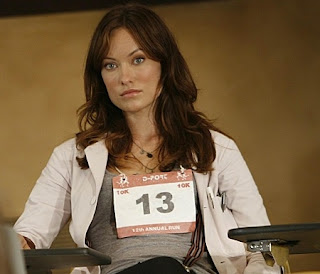 |
| I'm not a Dr., but I get paid better |
The average female primary-care physician would have been financially better off becoming a physician assistant.
Those damn conservative at Atlantic have the intolerance to publish this article claiming the women doctors worse less than men doctors, and that financially at least, they would be better off (on average) becoming physicians assistants:
Focusing on the financial repercussions of these career choices, we use a tool common for analyzing investment called a net-present-value (NPV) calculation. An NPV calculation adds up the costs of obtaining a degree, and all of the earnings received over the career that degree enables, taking into account the fact that money earned later is not as valuable as money earned earlier (due to interest), summarizing a career decision in a single number. This captures the insight that in order for an investment in the high up-front cost medical degree to overcome the lower up-front cost of a PA degree, not only do a doctor's wages have to significantly exceed those of the PA, but the doctor needs to be willing to work enough hours to make those wages pay off.
 |
| Some "non-Dr" pictures here |
To see if doctors do indeed work long enough hours, we looked at data from a Robert Wood Johnson survey of physicians on how many hours female and male primary-care physicians work at different points in their careers. We combined that with data from the American Academy of Physician Assistants.
We then compared the earnings of male and female physicians in our data and estimate what those individuals would have earned if they had worked as PAs.
We found that, for over half of woman doctors in our data, the NPV of becoming a primary-care physician was less than the NPV of becoming a physician assistant. In contrast, the vast majority of male primary-care physicians earned an NPV greater than the NPV earned by a male PA. That is, while the vast majority of male doctors are financially better off for having become a doctor, the median female primary care physician would have been financially better off becoming a PA.
Even though both male and female doctors both earn higher wages than their PA counterparts, most female doctors don't work enough hours at those wages to financially justify the costs of becoming a doctor.In a nation where physicians are going to be increasingly in demand, and medical care will likely be rationed based on the availability of physicians, does it make sense to even allow women to try to become doctors? I mean, as long as we're going to carefully regulate medicine and all. It's not like choice should play into this, right? Or can we mandate that women Drs put in the same hours that the men do?
We also examined alternative medical professions such as pharmacy, and our basic findings were the same. Programs that have high upfront training costs only make financial sense if you plan to work enough hours later on, and many women doctors do not end up working enough to justify the costs they pay.
It is worth noting that this specific result pertains to women primary-care physicians who work about 40 hours a week. Obviously, some women doctors work more hours, and some work many fewer. Women working significantly more than this do get a financial advantage from becoming a physician.
Or we could pay them less and make more of them.
Found at Althouse.
And to complete the weirdness...
Rule 5 Sunday done come on Sunday this week at the Other McCain, with "Every Rose Has It's Thorn."

No comments:
Post a Comment